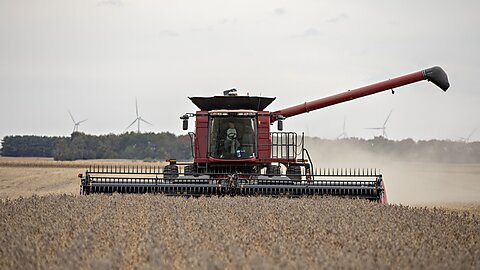Robert F. Kennedy Jr. writes in the Wall Street Journal that “Trump Can Make America Healthy Again.” I agree with Kennedy that some national health trends are disturbing. The share of US adults who are obese has risen from 15 percent in the late 1970s to 42 percent today.
Kennedy proposes some health system changes that I am not qualified to assess. But I approve of his proposals for food stamps and farm subsidies quoted here.
Stop allowing beneficiaries of the Supplemental Nutrition Assistance Program to use their food stamps to buy soda or processed foods. Nine percent of all SNAP funding goes to sweetened drinks, according to 2011 data. It’s nonsensical for U.S. taxpayers to spend tens of billions of dollars subsidizing junk that harms the health of low-income Americans.
SNAP will cost taxpayers $105 billion this year, with almost 25 percent of the dollars going toward junk food, including soda, candy, potato chips, cookies, and ice cream. Those subsidies are absurd given the explosion in obesity and the government’s large budget deficits.
Low-income individuals have higher obesity rates than other Americans, and SNAP recipients have higher obesity rates than low-income individuals not on the program. The “N” in SNAP is a government falsehood.
The best reform would be to repeal SNAP and allow the states to pursue their own low-income food policies. But regarding Kennedy’s proposal, I’d suggest simply giving the states waivers allowing them to cut out any foods they want from their SNAP programs. The federal government has denied such waivers in the past.
Reform crop subsidies. They make corn, soybeans and wheat artificially cheap, so those crops end up in many processed forms. Soybean oil in the 1990s became a major source of American calories, and high-fructose corn syrup is everywhere. Our subsidy program is so backward that less than 2% of farm subsidies go to fruits and vegetables.
Crop subsidies should be repealed because they burden taxpayers and distort agriculture. Kennedy is right that fruits and vegetables receive few subsidies, and neither does ranching. But the lesson is not that subsidies for crops should be reallocated to other products, but that most American farming prospers without subsidies. There is no reason to coddle corn, wheat, and soybean farmers when other farmers stand proudly on their own two feet.
More on SNAP here.
More on farm subsidies here.

